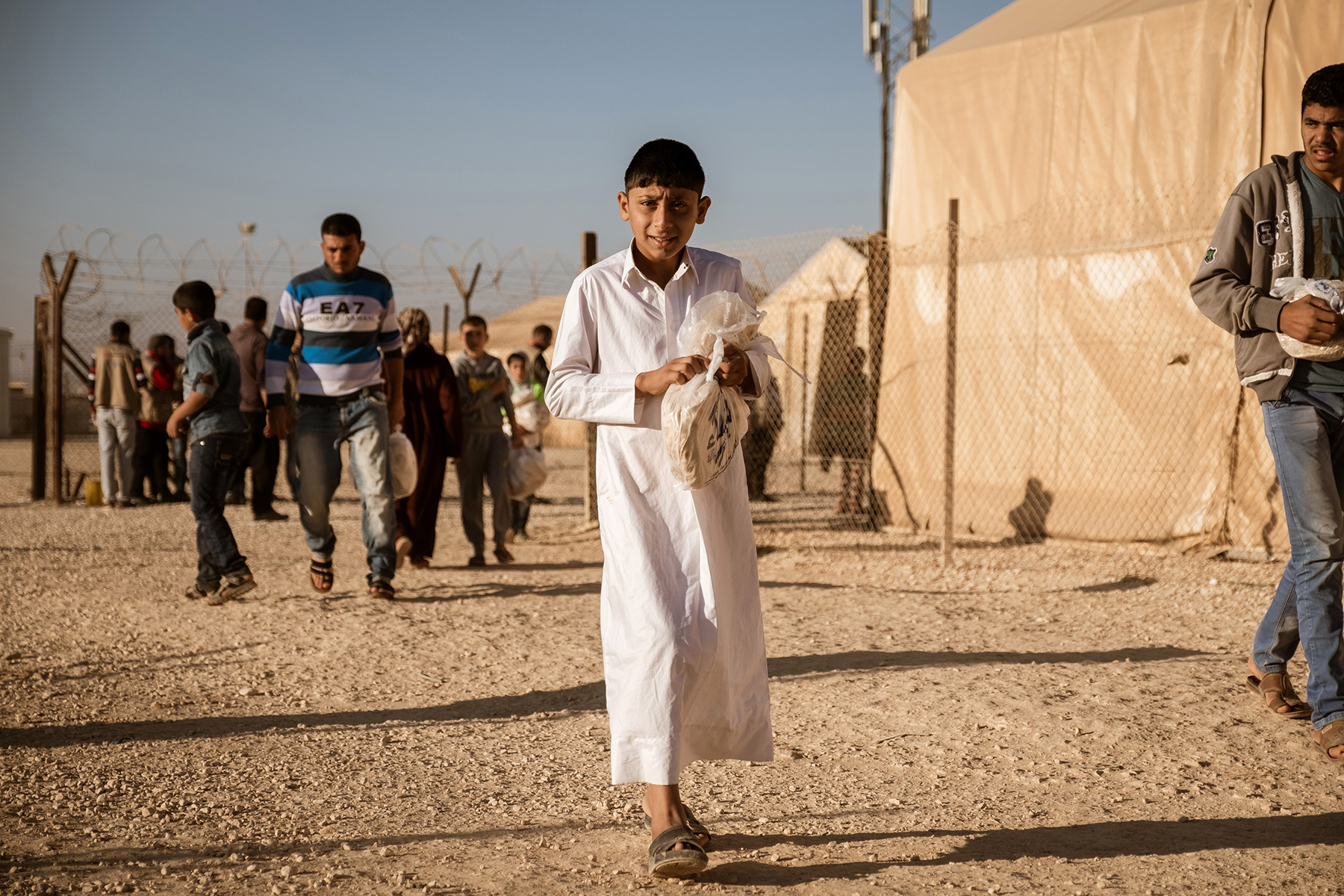ONU
WORLD FOOD PROGRAMME
WFP’s Healthy Kitchen Project in Azraq, Jordan
As the Syrian conflict enters its sixth year this month (March 2016), WFP continues to develop innovative programming to address the multi-faceted challenges of this protracted crisis. While WFP will ensure the provision of life-saving basic needs, increasing resilience and livelihood opportunities have also become a necessary cornerstone of WFP’s programme development. WFP’s “Healthy Kitchens” project is one such example, providing employment for Syrian women to prepare, cook, and serve healthy school lunches for Syrian children in school. In addition to creating livelihood opportunities for vulnerable Syrian women, the project provides key nutritional support for children while helping to reinforce educational outcomes. Beyond direct support to women and students, the Healthy Kitchens project increases impact by engaging with local supply chains for commodity procurement, strengthening local food production, processing, transport, and distribution while stimulating local economic growth. Finally, the project provides an opportunity for WFP to expand and strengthen partnerships with other humanitarian actors across the region.
The Healthy Kitchens project is currently being piloted in Jordan’s refugee camps (Zaatari and Azraq), where over half of the total population are children (around 60,000 children), and an average of 37 percent of households are headed by women. WFP prioritizes mothers of students attending schools in the camps for an employment opportunity through Healthy Kitchens as part of its holistic programming approach. The project’s pilot phase will employ approximately 200 women to prepare and cook healthy school meals such as fresh cheese and thyme bread served with a seasonal vegetable and fruit, and provided to over 4,000 students in Zaatari and 1,500 students in Azraq per day. The project builds on key recommendations from Jordan’s 2015 Comprehensive Food Security and Monitoring Exercise (CFSME) which stressed 1) the importance of increasing access to economic opportunities for refugees, and 2) the need to enable and expand small-scale income generation, livelihood and competition to drive down the prices of food items in camp settings.
In line with these recommendations WFP seeks to expand the Healthy Kitchens project where feasible across the region under its “Grow” programme, part of the Syria + Five Vision 2020.
The Healthy Kitchens project is an example of how WFP continues to build upon its core strengths to naturally expand to meet unique context demands, and more completely fulfill its mandate through innovative and sustainable
programming. Such programming, which focuses on pertinent themes directly linked to the protracted crisis, (including food security, education, livelihood creation and resilience) is becoming ever more essential to address the
needs of vulnerable Syrians. Moving forward, this type of project will likely become a cornerstone of WFP’s Syria + Five Vision 2020, as it will promote education, create livelihood opportunities and strengthen national resilience.
Most importantly, this type of programming will only be feasible in cooperation with key partnerships with other UN agencies, international NGOs, and governments

